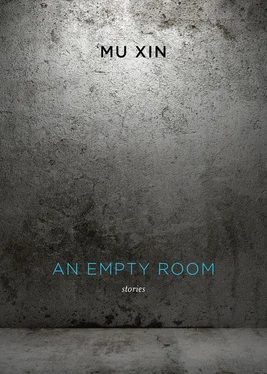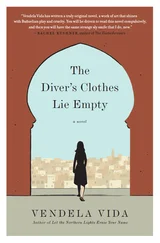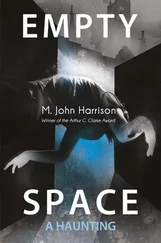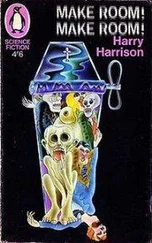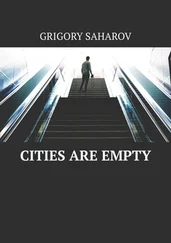Mu Xin - An Empty Room
Здесь есть возможность читать онлайн «Mu Xin - An Empty Room» весь текст электронной книги совершенно бесплатно (целиком полную версию без сокращений). В некоторых случаях можно слушать аудио, скачать через торрент в формате fb2 и присутствует краткое содержание. Год выпуска: 2011, Издательство: New Directions, Жанр: Современная проза, на английском языке. Описание произведения, (предисловие) а так же отзывы посетителей доступны на портале библиотеки ЛибКат.
- Название:An Empty Room
- Автор:
- Издательство:New Directions
- Жанр:
- Год:2011
- ISBN:нет данных
- Рейтинг книги:3 / 5. Голосов: 1
-
Избранное:Добавить в избранное
- Отзывы:
-
Ваша оценка:
- 60
- 1
- 2
- 3
- 4
- 5
An Empty Room: краткое содержание, описание и аннотация
Предлагаем к чтению аннотацию, описание, краткое содержание или предисловие (зависит от того, что написал сам автор книги «An Empty Room»). Если вы не нашли необходимую информацию о книге — напишите в комментариях, мы постараемся отыскать её.
In Our Time
An Empty Room
An Empty Room — читать онлайн бесплатно полную книгу (весь текст) целиком
Ниже представлен текст книги, разбитый по страницам. Система сохранения места последней прочитанной страницы, позволяет с удобством читать онлайн бесплатно книгу «An Empty Room», без необходимости каждый раз заново искать на чём Вы остановились. Поставьте закладку, и сможете в любой момент перейти на страницу, на которой закончили чтение.
Интервал:
Закладка:
Then, a silent pause later he said, “Tomorrow, we will discuss this tomorrow.”
“Why wait until tomorrow?” I chuckled. “Are you going to lose sleep over my thoughts? Don’t tell me you’re going to consult some reference books?”
“I admit I’m confused,” he laughed. “You and Fong Fong are ordinary people, but this situation concerns a complex issue. Montaigne wouldn’t be able to offer an answer even if you could ask him. Let me think about it — I don’t want to give you a wrong answer.”
We met in a café the following day. My friend looked serious indeed and burst out without warning, “Your thoughts seem completely accurate!”
His loud voice alarmed two ladies sitting at a nearby table. I apologized on his behalf. My literary friend said, “You don’t need to apologize. I would rather like it if they heard this story from your past.”
“Shhh. . Europeans are quite innocent of this sort of thing.”
Notes from Underground
i first met him at his art opening in Boston in 1985. Then ten years later, under unexpected circumstances, I finally learned about his “notes.” He invited me to visit him in his apartment in the suburbs of New York one winter evening and brought me to his study. His manuscript was stacked next to his lamp on his desk — sixty-six handwritten pages on thin rice paper that had yellowed; the red-stamped letterhead indicating a certain work unit that existed during those times which I too experienced. Each piece of paper was filled on both sides with tiny, graceful words handwritten in blue ink. A feeling akin to religious awe washed over me, though I’m not religious, nor is the artist. He explained to me that that the manuscript was composed as a story in the style of prose-poetry, but that he now calls it his “notes.” It would be difficult to restore the story as a whole, considering the pages weren’t numbered in the first place and much of the writing was faded to a point that it was impossible to discern. I persuaded him to let me transcribe a few selected paragraphs so that he could pass on to posterity some evidence of his resilient spirit and preserve a part of our historical memory that is fading faster than the blue ink on the thin sheets.
The story of how the author was locked in an underground prison and how he was able to write the “notes” is remarkable. His underground is not a basement in nineteenth-century St. Petersburg but one in twentieth-century China. The prison was an abandoned air-raid shelter in Shanghai where our author was confined as a solitary prisoner for ten months from 1971 to 1972. As terrifying as this may sound today, it was one of many illegal prisons in those days and he was one of many “prisoners” whose “crime” was belonging to a certain “undesirable class” (in his case, he was classified as an “intellectual with decadent thoughts”). Such people were imprisoned without trial, without sentencing, without a court of law. This period of Chinese history seems too complex for foreigners, or even subsequent generations in China born after the 1960s, to truly comprehend. For it is extraordinarily difficult to explain certain phenomena that were common then. Suffice it to say that the artist experienced the kind of imprisonment which was imposed on him by “rebels” (zaofanpai) in his work unit. The charges against him: “dangerous and decadent thoughts.”
So for ten months the artist was confined underground, in an abandoned air-raid shelter flooded with dirty water, dwelling in total darkness save for a dim gasoline lamp. His immediate family had died and his remaining relatives thought he was dead. Those who left him in this underground hole provided him with paper so that he could write down and submit his “confessions.” He secretly used some of the sheets to write his book. He then carefully folded the manuscript and sewed it into his cotton-padded winter pants to avoid detection. Then, one day, he was released, and miraculously he walked out in those pants, with the manuscript intact.
The artist’s reasons for writing the “notes” are personal. But he did reveal one thing to me: “It was my way to stay alive.” The following are a few excerpts from his “notes.”
I. Death of a Diva
It’s ironic that in this dungeon, forced into the life of an ascetic, I should feel like St. Anthony. As long as I can mentally resist the temptation of illusions, I will have my respite; yet I know that another storm will come, and that the punishment will continue, so that in the future when I remember the here and now, I might even call it the “good old days.” In front of me is a dark blue inkbottle and a gray ashtray made of fine china. The ink bottle is provided by the work unit. Being public property, it is perhaps “socialist” in nature. The ashtray used to be a sugar bowl, part of a tea set made in England that I brought here with me. I guess that makes it “capitalist” in nature. When I first came to the dungeon I would smoke a pack of cigarettes a day; recently I have cut down to half a pack. With a wave of my hand, the matchstick with which I light my cigarette goes out. This, I discovered some time ago, could be used for my entertainment. All I had to do was plant the stick gently into the ashes in the ashtray and watch it burn from top to bottom, a tiny bright-red pillar of flame. The pillar would then turn gray, bend, break, and become a circle of ash among ashes. For several months I have been successfully directing the same drama: the ashtray resembles a circular stage on which the matchstick, like a legendary diva, sings her swan song before she slowly falls to the ground and dies.
II. People on the Road
I enjoy watching men and women silently walking on the road, their faces expressionless, their attention undivided. A person on the road seems absorbed in self-respect, as if he would explode at the slightest provocation. His carefree look is but a façade behind which his instincts stand on guard. That he is on the road means he is in “transition” — he could have just come from doing something, or he could be on his way to do something, or perhaps what he has to do requires his attention in two separate places. Thus he is between one thing and another thing, which is a state of neither good nor evil. You cannot say with certainty whether a passerby is good or evil; he embodies the concept of “human.” But when he (or she) meets someone he knows, when he says hello, then stops and makes conversation, all of a sudden he is transformed from a conceptual human to a specific human with his own individuality. When the two part ways again, he promptly reassumes the identity of a “passerby.” It now seems conceivable that the thing he is going to do could be good or bad, or that he has just done something good or bad. But since he is on the road and is no longer involved, it is still difficult to say if he is good or if he is bad. Since I am imprisoned, I no longer have the pleasure of watching people walking on the road. My connections with the world have been reduced to such a minimal degree that even if I were on the road I could only see but not talk. I have no need to cherish the memories of any relatives or friends. So I devote my nostalgia to men and women endlessly walking on boulevards and in streets, innocent of good and evil. Whether their past or their future is good or bad is unknown to me and of no concern.
III. Tiny Tassels
Life can drive the young to hopelessness as it can drive the middle-aged to hopelessness, but who grieves more in their hopelessness? It would seem that the youth would grieve more, but it is the middle-aged person who really gives up and no longer dreams. Because hope is the premise for life, hope will endure in the subconscious if it is destroyed in the conscious mind. In this way the life of humans can be distinguished from the life of animals. The hopelessness of animals is a biological and instinctive feeling of the end, but the hopelessness of humans is a final judgment based on reason and conscious thought. A young person retains more of the animalistic quality, while a person aware of aging is being transformed to a “human being” in a purer sense; he is learning precisely those fatal points that render hope hopeless. I don’t have the good fortune of living in the nineteenth century. But I once saw a picture of the room in which Lermontov was imprisoned: there was a round table covered with a thick, solid tablecloth, a table lamp with an opalescent glass shade, a brass teakettle, and two high-back chairs. The poet-prisoner, in his military uniform, was allowed to receive visitors, such as Belinsky. If I had lived in Lermontov’s times, I wouldn’t have been thrown into this dungeon flooded with filthy water. I feel profoundly relieved that Lermontov was more fortunate than me — Lermontov with his teakettle so authentically Russian, and his tablecloth with its rows of tiny tassels hanging from the sides.
Читать дальшеИнтервал:
Закладка:
Похожие книги на «An Empty Room»
Представляем Вашему вниманию похожие книги на «An Empty Room» списком для выбора. Мы отобрали схожую по названию и смыслу литературу в надежде предоставить читателям больше вариантов отыскать новые, интересные, ещё непрочитанные произведения.
Обсуждение, отзывы о книге «An Empty Room» и просто собственные мнения читателей. Оставьте ваши комментарии, напишите, что Вы думаете о произведении, его смысле или главных героях. Укажите что конкретно понравилось, а что нет, и почему Вы так считаете.
